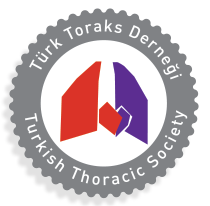Abstract
OBJECTIVE:
Disseminated tuberculosis (dTB) is an important health issue resulting from the hematogenous spread of Mycobacterium tuberculosis, and is associated with a globally significant burden of morbidity and mortality. Despite several studies from various countries, there are no data from Turkey specifically evaluating this special population. Our study aimed to evaluate the characteristics and treatment outcomes of dTB patients followed in our institution.
MATERIAL AND METHODS:
In the current case series, patients with dTB followed between 2017 and 2020 in our institution were retrospectively examined. Data regarding patient characteristics, diagnostic methods, organ involvement, radiological patterns, treatment regimen, and outcomes were recorded. Descriptive statistics were performed.
RESULTS:
In the present study, 23 dTB patients (median age 36, 56.5% male) were evaluated. The most common extrapulmonary manifestations were observed in the skeletal (n = 13) and genitourinary systems (n = 5). Multidrug-resistant TB was detected in 3 patients. The most common risk factors for dTB were living in a country with a high TB burden, and HIV infection.
CONCLUSION:
Foreign-born patients were at high risk for disseminated TB in our study. HIV infection was also defined as the most important risk factor. Our data contribute to the current knowledge on the characteristics and outcomes of dTB patients in Turkey.
Cite this article as:
Gurkan C, Şekerbey H, Babalık A. Disseminated tuberculosis: A 3-year case-series experience in a tertiary care center. Turk Thorac J. 2021; 22(5): 358-363.



